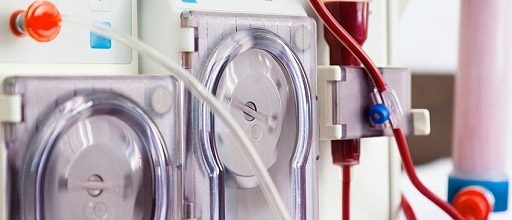
Extended dialysis makes little difference
People with kidney failure undergoing dialysis will see little difference to their overall quality of life if they undergo extra hours of dialysis, a new study has found.
The study, presented at the ‘High Impact Clinical Trials’ session at the world’s largest gathering of kidney specialists, the American Society of Nephrology Renal Week in Philadelphia, challenges the widely-accepted view of clinicians that longer dialysis means better clinical outcomes and improved quality of life.
Kidney failure is caused mainly by high blood pressure and diabetes.
In Australia, around 11,000 people a year undergo dialysis, costing the Australian health system up to $80,000 per patient each year. This figure is expected to rise sharply over the next decade, corresponding with the rise in diabetes, a major cause of kidney failure. Dialysis rates are expected to rise at a higher rate than kidney transplants, however, as already there is a shortage of available kidneys from donors.
In the United States, which has the highest dialysis rates in the world, nearly 400,000 people are on dialysis at a cost of more than $32 billion a year.
Lead author Professor Meg Jardine, of The George Institute for Global Health and The University of Sydney, said: “A healthy kidney is working 24 hours a day, 7 days a week. So the idea that patients can improve their outcomes by spending more time on dialysis has intrinsic appeal.In this study, participants randomised to extending their dialysis exposure spent 24 hours every week on dialysis, which was twice as much time as those who continued on a standard regime. Despite this, we found little difference in when comparing kidney patients’ outcomes from the two groups.
“It’s a big ask for patients, to spend so much time on dialysis, so perhaps this will lessen the pressure on them.”
Patients did, however, experience more favourable blood pressure parameters and some improvements in biochemistry measurements.
“This study only ran for 12 months, so we don’t know if those improvements will translate to a health benefit over the longer term. What was apparent though is that doubling weekly dialysis hours didn’t show clear benefits over the year.”
Senior author, Professor Vlado Perkovic, commented: “The growing numbers of people with kidney failure experience poorer health than their peers. The jury is still out on whether extending dialysis hours will play a role in reducing this burden.”
Kidney Health Australia’s National Medical Director, Dr Tim Mathew, said it was a potentially important study looking at dialysis outcomes.
“The average outcome of people on dialysis at the current time is restricted,” said Dr Mathew, “A longer term observation from this study would be of great interest to see if it provides evidence of reduced morbidity and mortality in those patients with increased hours.”
This study was part-funded through the Cardiovascular Research Network.




